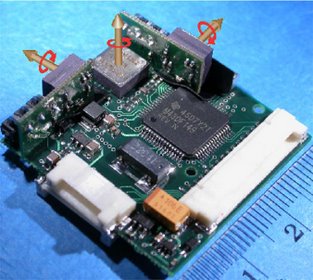Vestibular NeuroEngineering Laboratory
Mission: Restore Balance to Those Disabled by Bilateral Loss of Vestibular Sensation
For tens of thousands of people who suffer from severe loss of vestibular sensation due to genetic defects, drug reactions, Ménière’s disease, viral infection or other inner ear diseases, a new device in development at Johns Hopkins may alleviate symptoms of the balance disorder, including chronic disequilibrium and difficulty seeing while walking or driving.
 Charles C. Della Santina, Director of the Vestibular NeuroEngineering Lab
Charles C. Della Santina, Director of the Vestibular NeuroEngineering LabIn recent studies in animals, researchers at the Johns Hopkins Vestibular NeuroEngineering Lab have shown that a damaged sense of balance can be restored effectively with a multichannel vestibular prosthesis device implanted in the inner ear.
“The inner ear measures how your head is oriented and how it’s moving,” explains Charles C. Della Santina, M.D., Ph.D., Associate Professor in the Division of Otology, Neurotology and Skull Base Surgery and Director of the Johns Hopkins Vestibular NeuroEngineering Laboratory. “That information drives reflexes that keep you from falling and keep your vision steady. Without it, you feel wobbly and the world seems to drift whenever you move your head.”
Since 2002, members of the VNEL been developing and testing increasingly sophisticated versions of the Johns Hopkins Multichannel Vestibular Prosthesis (MVP), which includes multiple sensors and channels of processing allowing it to measure and encode head rotation in all directions. Animal trials show that the device effectively mimics the workings of the inner ear, by sensing head rotation and transmitting that information to the brain through selective electrical stimulation of branches of the vestibular nerve.
 Johns Hopkins Multichannel Vestibular Prosthesis
Johns Hopkins Multichannel Vestibular ProsthesisWhile many people with profoundly impaired balance ultimately resume normal daily life after rehabilitation, others remain disabled. “There are no adequate treatment options for these patients,” says Della Santina. “Our recent results are exciting because they define a clear path toward the multichannel vestibular prosthesis that will eventually restore a sense of balance for our patients.”
